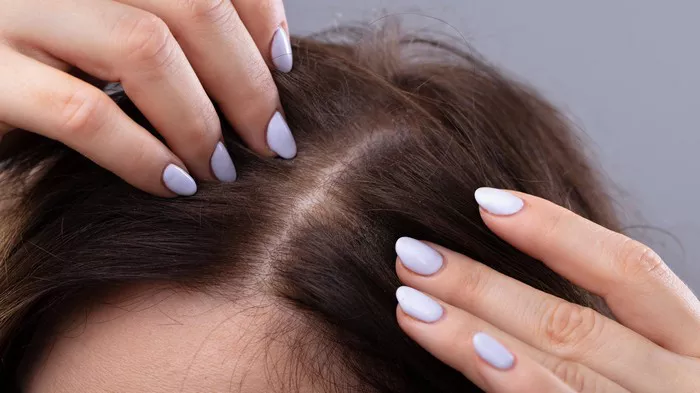The health of our hair is intricately linked to our overall well-being, and a poor diet can manifest in various ways, including hair loss. The good news is that, in many cases, hair loss resulting from a nutrient-deficient diet can be addressed and even reversed with the right interventions. In this article, we will explore the impact of diet on hair health and discuss effective strategies to reverse hair loss caused by nutritional deficiencies.
Understanding the Connection Between Diet and Hair Loss
Before delving into solutions, it’s crucial to understand how a poor diet can contribute to hair loss. Hair follicles are among the body’s most metabolically active cells, and they require a steady supply of nutrients to function optimally. A diet lacking in essential vitamins, minerals, and proteins can lead to weakened hair shafts, increased hair shedding, and ultimately, hair loss.
Nourishing Your Hair from Within
The foundation for reversing hair loss caused by poor diet lies in providing your body with the nutrients it needs to support healthy hair growth. Here are key dietary elements to focus on:
1. Protein-Rich Foods: Hair is primarily composed of a protein called keratin. Ensuring an adequate intake of protein-rich foods such as lean meats, fish, eggs, and legumes provides the building blocks necessary for hair growth.
2. Iron and Ferritin Levels: Iron deficiency is a common cause of hair loss. Include iron-rich foods like spinach, lentils, and lean meats in your diet. Additionally, ensure adequate levels of ferritin, a protein that stores iron, as low ferritin levels can contribute to hair shedding.
3. Omega-3 Fatty Acids: Found in fatty fish, flaxseeds, and walnuts, omega-3 fatty acids contribute to the health of the hair shaft and the scalp. They also have anti-inflammatory properties that can benefit the hair follicles.
4. Vitamins and Minerals: Ensure sufficient intake of vitamins and minerals crucial for hair health, including vitamin A, vitamin E, vitamin D, and zinc. These nutrients play essential roles in maintaining the strength and vitality of your hair.
Supplements for Hair Health
In cases where dietary changes alone may not be sufficient, supplements can be a valuable addition to your hair care routine. Consult with a healthcare professional before starting any supplements, as excessive amounts of certain vitamins and minerals can have adverse effects. Common supplements for hair health include:
1. Biotin: Also known as vitamin B7, biotin is often recommended for promoting hair growth and preventing hair loss. It plays a crucial role in the production of keratin.
2. Iron Supplements: If diagnosed with iron deficiency, your healthcare provider may recommend iron supplements to address the deficiency and promote healthy hair growth.
3. Omega-3 Supplements: For those with limited dietary intake of omega-3 fatty acids, supplements can be an effective way to ensure an adequate supply for healthy hair.
Improving Dietary Habits
In addition to targeted nutrient intake, overall dietary habits play a significant role in reversing hair loss from a poor diet. Consider the following lifestyle adjustments:
1. Hydration: Proper hydration is essential for overall health, including the health of your hair. Drinking an adequate amount of water helps in transporting nutrients to the hair follicles and maintaining scalp health.
2. Limit Processed Foods: Processed foods often lack the essential nutrients needed for healthy hair. Opt for whole, nutrient-dense foods to ensure your body receives a broad spectrum of vitamins and minerals.
3. Balanced Meals: Aim for balanced meals that include a variety of food groups. Incorporate fruits, vegetables, lean proteins, and whole grains into your daily diet to provide a diverse range of nutrients.
Professional Guidance and Hair Care Practices
Seeking guidance from a healthcare professional or a registered dietitian can be instrumental in developing a personalized plan to address hair loss resulting from a poor diet. They can conduct tests to identify specific nutrient deficiencies and tailor recommendations accordingly.
In addition to dietary changes, adopting healthy hair care practices can complement your efforts in reversing hair loss:
1. Gentle Hair Care: Treat your hair gently to avoid unnecessary stress and breakage. Use a wide-tooth comb, avoid tight hairstyles, and limit the use of heat styling tools.
2. Regular Trims: Regular hair trims help eliminate split ends and prevent further damage, promoting healthier hair growth.
3. Scalp Massage: Stimulate blood circulation to the scalp through regular massages. This promotes nutrient delivery to the hair follicles, enhancing overall hair health.
Patience and Consistency
Reversing hair loss from poor diet is a gradual process that requires patience and consistency. Hair growth is a slow cycle, and improvements may not be immediately apparent. Consistently nourishing your body with the right nutrients, adopting a healthy lifestyle, and practicing good hair care habits will contribute to the gradual restoration of your hair’s health.
See Also: [Revealed!] Can Alpecin Cause Hair Loss?
Conclusion
Hair loss resulting from a poor diet is a common concern, but it’s a challenge that can be effectively addressed through strategic dietary changes, supplementation, and healthy lifestyle practices. By focusing on nourishing your body from within and adopting a holistic approach to hair care, you can reverse the effects of poor nutrition and embrace a head of healthy, vibrant hair. Consult with professionals, be patient, and celebrate the journey toward revitalizing your tresses.


